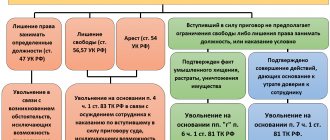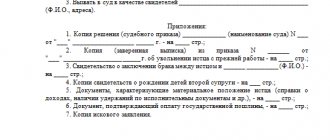Cassation appeal in a new way
This is a very important point. If you forget to attach even one piece of paper, the cassation appeal will be left without movement. This is also an innovation. Previously, a cassation appeal was simply returned without further discussion if you forgot to attach at least one piece of paper or filed the complaint itself incorrectly. One attorney assistant I know told me that his cassation appeal was returned only because some phrases in his complaint were underlined.
The six-month period for filing a cassation appeal is divided into two periods of three months each. The first period, consisting of three months, is allocated for filing the first cassation appeal. After consideration of the first cassation appeal, a second three-month period begins from the date of the ruling by the cassation court of general jurisdiction for filing a second cassation appeal.
Double cassation in civil proceedings
In civil proceedings today, according to the norms of current legislation, various options are possible for defending one’s interests and rights. Most disputes are resolved in court. If the decision made by the judge does not satisfy one of the parties, it has the right to initiate an appeal procedure.
Complaints of the established form are accepted by the cassation court (the subject of the appeal does not matter). The procedure may have different results. Failure to comply with the appeal procedure, incorrect execution of documents, etc. lead to the return of the cassation appeal to the applicant without its detailed study by competent specialists.
How to file a cassation appeal to the Supreme Court in a civil case
In order to correctly draw up a complaint, carefully read the court decision and its annexes. Check for the correctness of the required details, composition of judges, signatures in the court protocol and interim rulings. Record each comment in the form of a list.
You can restore the missed deadline only in the court of first instance if you prove that the delay in filing the complaint occurred due to exceptional circumstances. The absence can be explained by a business trip, serious illness, or family circumstances. Ignorance of the law is not one of them.
Cassation in civil proceedings
Cassation is the third and fourth instance in the judicial process of courts of general jurisdiction (the second is the appellate instance). An article on our website dedicated to the appellate instance will help you understand the difference between cassation and appeal in civil proceedings.
It is important to know that refusal to transfer a case does not exhaust the rights to cassation appeal; a cassation appeal can consist of two parts. If the first one is refused, the second cassation in civil proceedings (exactly the same) is submitted to the Supreme Court. In this case, you must manage to meet the general six-month deadline established for a cassation appeal.
FEATURES OF THE NEW CASSATION
— The issue of appealing and reviewing court decisions that entered into legal force before the start of the activities of the cassation courts is also one of those that concerns the parties to the process. Could you please provide your comments on this issue?
— Federal Constitutional Law No. 1-FKZ dated July 29, 2018 (hereinafter referred to as Law No. 1-FKZ) and Federal Law No. 361-FZ dated October 11, 2018 (hereinafter referred to as Law No. 361-FZ) provide for transitional provisions. They make an attempt to resolve all possible situations that may arise in connection with appeals against court decisions that entered into legal force before the start of the activities of cassation courts of general jurisdiction.
The first thing I would like to say is that after the start of the work of cassation courts of general jurisdiction, the presidiums of the supreme courts of republics, regional, regional and equal courts do not lose their procedural powers in relation to the consideration of cassation complaints and submissions received by the presidiums of the courts before the start of work of cassation courts, but no later than 10/01/2019. This follows from paragraph 7 of Art. 7 of Law No. 1-FKZ. The presidiums of these courts, by virtue of paragraph 5 of Art. 2 of Law No. 361-FZ, when considering such complaints and submissions, they must be guided by the rules provided for in Chapter. 47.1 of the Code of Criminal Procedure, which were in force before the start of the work of the cassation courts. In other words, the presidiums of the courts, after the start of the activities of the cassation courts, do not transfer all outstanding complaints and presentations to these courts, but continue to consider them according to the rules that are currently applied. Moreover, after the case is reviewed by the presidium (or a refusal to review is received), the next appropriate cassation instance for considering complaints and submissions will not be the cassation court of general jurisdiction, but the Judicial Collegium for Criminal Cases or the Judicial Collegium for Military Personnel of the Supreme Court RF. If, based on the results of consideration of complaints and submissions filed before the start of the activities of the cassation court, they are submitted to the relevant presidium of the court for consideration, then the decision of the presidium, adopted as a result of consideration of these complaints and submissions, is appealed to the Supreme Court of the Russian Federation, and not to the cassation court of general jurisdiction .
— What to do if, before the start of the work of the cassation courts, the subjects of cassation appeal did not appeal court decisions or appealed, but did not exhaust all possibilities (instances) for cassation appeal?
— For persons who did not exercise the right to appeal in cassation court decisions that entered into legal force before the start of work of the cassation courts, or who did not exercise this right in full, the law (clause 6 of Article 2 of Law No. 361-FZ) retains the right to appeal such decisions according to the rules of Part 3 of Art. 401.3 of the Code of Criminal Procedure, that is, according to the rules of selective cassation. For example, a court decision entered into legal force before October 1, 2019, but the parties for some reason did not file a complaint or presentation before the specified period. They took their time, knowing about their right to three instances: a judge of the supreme, regional, regional and equal courts, a judge of the Supreme Court of the Russian Federation and the Deputy Chairman of the Supreme Court of the Russian Federation. Or they wanted to, but did not have time to exercise their right. Such entities can appeal court decisions to a cassation court of general jurisdiction through selective cassation, as expressly stated in paragraph 6 of Art. 2 of Law No. 361-FZ. In the same manner, persons who appealed a court decision according to the old rules to the presidium of the relevant court, but were refused by the judge, who did not appeal, have the right to appeal court decisions, that is, they did not exercise their right to appeal in full - they did not go through all the judicial cassation instances . Starting from 01.10.2019 - from the beginning of the activity of cassation courts - the parties have the right to appeal both final and interim court decisions that entered into legal force before the specified date, according to the rules of selective cassation. In other words, exactly the same as persons who did not appeal court decisions in cassation before 10/01/2019. A similar procedure for considering cassation complaints and submissions should also take place if the court decision entered into legal force before October 1, 2019, the parties appealed the court decision according to the old rules and a decision was made by the presidium of the relevant court, which the parties did not appeal to the Supreme Court of the Russian Federation until October 1 .2019. In this situation, the decision of the presidium of the relevant court cannot be appealed to the court of cassation - an instance that actually replaces the presidiums of the courts, since the case in this case could go through three cassation instances: the presidium of the regional court, the court of cassation and the Judicial Collegium of the Armed Forces of the Russian Federation. But just as before the reform there were only two cassation instances (the Presidium and the Judicial Collegium of the Supreme Court of the Russian Federation), there will only be two of them (the Court of Cassation and the Judicial Collegium of the Supreme Court of the Russian Federation). In this regard, with regard to the decision of the presidium of the court, issued before October 1, 2019 and not previously appealed, after the start of the activities of the cassation courts, the appropriate cassation instance is the Judicial Collegium for Criminal Cases or the Judicial Collegium for Military Personnel of the Supreme Court of the Russian Federation.
Cassation appeal in a new way
One good thing is that you no longer have to wait for the appellate authority to reconsider and deign to return the case to the court of first instance. In which, in turn, we had to receive certified copies of the decision of the first instance court and the appeal ruling before filing a cassation appeal. Without these copies, the cassation appeal was doomed to be returned. From October 1, 2021, these copies no longer need to be attached to the cassation appeal, which is filed first. It is still necessary to attach certified copies of all decisions in the case to the cassation appeal to the Supreme Court of the Russian Federation (second cassation appeal) (Part 4 of Article 390.5 of the Code of Civil Procedure of the Russian Federation).
We recommend reading: Resettlement in 2021, what kind of houses? Saratov
But now, in fact, only a document confirming payment of the state duty is attached. Please note - not a receipt, as indicated earlier, but a document. It is not yet clear whether the original receipt will be required as before, or whether a copy from the client bank can be attached. I myself sent a new cassation appeal today (10/05/19) electronically and attached a screenshot of a check from the client bank. In theory, since it is now possible to file a cassation appeal electronically, this means that the receipt for payment of state fees can also be submitted electronically. Although. Let's not forget what country we live in.
"Achilles' heel" of continuous cassation
Changes to the legislation on cassation appeals in courts of general jurisdiction, which entered into force on October 1, were introduced in order to increase the efficiency of the mechanism for ensuring the legality of court decisions, as well as to “revitalize” and enhance the functions of the cassation instance in civil proceedings.
Indeed, “continuous cassation” in cassation courts of general jurisdiction, as well as courts with a renewed judiciary, often geographically distant from lower courts, gives hope for the “resurrection” of the principles of independence and independence of cassation proceedings.
At first glance, these innovations contain solid “advantages”. But, as you know, the coin has two sides, and when implementing the principle of complete cassation in practice, remaining unresolved problems began to appear. The “Achilles heel” of the new cassation appeal procedure was the receipt of a writ of execution after the court decision entered into legal force.
In accordance with Art. 428 of the Code of Civil Procedure of the Russian Federation, a writ of execution is issued by the court to the claimant upon his application after the court decision enters into force and, at his request, is sent for execution directly by the court.
In practice, we are faced with a problem: as soon as a case from the appellate instance is returned to the first instance, where a cassation complaint filed under the new rules of appeal is already awaiting it, literally the next day it is sent to the cassation court. If the claimant does not decide almost immediately after the court decision enters into force to submit an application to the first instance for the issuance of a writ of execution or a petition to send it to the claimant, then there is a high probability of finding out in the office that the writ of execution cannot be issued, since the case has already been transferred to cassation. Accordingly, according to the logic of the court staff, if there is no case, there is no writ of execution.
This situation obviously violates the claimant’s right to timely execution of a court decision, as well as the norms of the Code of Civil Procedure of the Russian Federation and leads to failure to fulfill the principles, goals and objectives of legal proceedings.
In my opinion, this problem could be solved in the following ways.
The first method, although it will not solve this problem fundamentally, will temporarily alleviate the situation - after the decision enters into force, the claimant submits an application for the issuance of a writ of execution. Then we can only hope that the court employee will not ignore the application and will still produce a document before sending the case to cassation.
This mechanism has not yet been tested in practice, but there are already concerns that it may malfunction, since the period while a civil case returned from appeal remains in the first instance before being sent to the cassation court is only a few days, during which a court employee You may not have time or simply forget to prepare a writ of execution.
The second method seems to be more workable; it consists in drawing an analogy with the agrarian and industrial complex of the Russian Federation. Thus, in arbitration proceedings, the principle of continuous cassation has been in effect for a long time. According to Art. 319 of the Arbitration Procedure Code of the Russian Federation, a writ of execution is issued after the judicial act enters into force, with the exception of cases of immediate execution (in such situations, a writ of execution is issued immediately after the adoption of a judicial act or its appeal for immediate execution). The specified document is issued at the request of the claimant or, at his request, is sent for execution directly by the arbitration court. I note that sending the case to the cassation instance in the arbitration court does not prevent the claimant from obtaining a writ of execution.
It would seem that the rules are identical, but they work differently in different courts. I believe this is explained by the fact that the arbitration case is stored in court in electronic form and its physical presence is not essential for the production of a writ of execution. In addition, in arbitration courts - at least in Moscow and the Moscow region - a positive practice has developed when a writ of execution is prepared by the court and sent to the claimant, regardless of the petition filed.
We can only believe that the chairmen of courts of general jurisdiction will not remain indifferent to this seemingly insignificant, at first glance, problem and will be able to learn from the positive experience of implementing full cassation from arbitration courts. Otherwise, the long-awaited receipt of the writ of execution will be delayed for the duration of the cassation hearing of the case, thereby aggravating the already difficult situation with the execution of the court decision.
In conclusion, let us give an example from our legal practice.
The decision of the Tverskoy District Court of Moscow in a civil case on the recovery in favor of our clients of a sum of money in excess of 6 million rubles. entered into force on November 18, 2021 on the basis of the Appeal ruling of the Moscow City Court.
According to the Moscow City Court on December 3, 2021, the case was sent to the Tverskoy District Court of Moscow. Then, on December 9, through the expedition of the district court, in the interests of the claimant, we filed an application for the issuance of a writ of execution, but the office staff refused to issue a writ of execution, citing the fact that the case was sent to the cassation court.
Naturally, we filed a complaint with the chairman of the Tverskoy District Court with the hope that this would somehow speed up the issuance of the writ of execution. Fortunately, at a personal reception the chairman heard our arguments and the writ of execution was received. In this regard, it is believed that in the future it will be easier for claimants to exercise the right to timely execution of a court decision.
The procedure and features of consideration of a cassation appeal in a civil case in 2021
Moreover, if in the appellate court only the operative part of the ruling was announced, and the announcement of the reasoned part was postponed for a period of no more than 5 days, then due to this period, the limitation period for filing a cassation statement is not extended (according to Article 199 of the Code of Civil Procedure).
According to Article 377 of the Code of Civil Procedure, a cassation appeal is not filed with the authority that made the contested decision, but directly with the court that will consider it. Cassation cases are considered by cassation courts. This may be the presidium of the Supreme Court, the regional and regional courts, the court of a federal city and the court of an autonomous region, as well as a district.
If the appellate instance was “missed” and the decision came into force, you can appeal the decision of the first instance court in cassation. In the case of an appeal hearing, when the original decision is left unchanged, the applicant has a choice: to appeal the decision of the first instance or the decision of the appellate court.
The cassation court does not have the right to review facts and circumstances already assessed by previous instances if the assessment was carried out in compliance with the norms of substantive and procedural law. Further, he cannot collect additional evidence and attract new defendants to participate in the case.
EXPANDING CASSATION CAPABILITIES
— You said that in the upcoming amendments to the Plenum resolution on cassation, it is planned to direct cassation courts not to show excessive formalism. Apparently, the discussion will be about ensuring that cassation courts do not consider cases blindly following the restriction that they can only evaluate questions of law?
— The criminal procedure law says that the sentence must be legal, reasonable and fair, and it is recognized as such if it is passed in accordance with the requirements of the Criminal Procedure Code, that is, it is legal and reasonable and based on the correct application of the criminal law (Article 297 of the Criminal Procedure Code) . Traditionally, in Soviet and post-Soviet criminal proceedings, a sentence that had entered into legal force was reviewed on the same grounds as a sentence that had not entered into legal force, that is, a judicial act was checked from the point of view of the same grounds. This approach was quite logical, and confirmation of this is many years of judicial practice, since the subject of the proceedings was the same: verification of the legality and validity of the sentence, since an unfounded sentence could not be recognized as legal, and an illegal one as justified.
Unfortunately, the Constitutional Court of the Russian Federation did not agree with this approach. Checking the compliance of certain norms of the Criminal Procedure Code of the RSFSR with the Constitution of the Russian Federation, he came to the conclusion that “The Criminal Procedure Code of the RSFSR, as follows from its Article 379 in conjunction with Articles 342–345, provides for the same grounds for reversing or changing a sentence and in the supervisory and cassation instances, thus not taking into account the fundamental difference between the review of a court decision that has entered into legal force, i.e., final, executory or executed (such a review is carried out in exceptional cases, especially in relation to an acquittal), from cassation review of a court decision that has not yet acquired legal force”2. The Constitutional Court of the Russian Federation summarized that “this conclusion is based on the exclusivity of the stage of reviewing a court decision that has entered into legal force and the approaches of the ECtHR regarding the criteria for reviewing the “final judicial act.”
Today, after almost 17 years since the adoption of this resolution, much has changed in the legislation and in the practice of the Constitutional Court of the Russian Federation regarding the application of the positions of the ECHR. Moreover, proceedings to review final court decisions that have entered into legal force in the form of a full cassation in the near future will, at the will of the legislator, become a completely ordinary stage of the criminal process. Apparently, such a change also involves adjusting the approaches to formulating the grounds for verification activities in the direction of their expansion. This conclusion can also be supported by the fact that the appellate verdict passed during the proceedings in the appellate court comes into force after its proclamation and can be revised on a very limited range of grounds, in contrast to the verdict passed by the court of first instance.
Nevertheless, today the subject of cassation proceedings is limited to checking only one property of a just judicial act - the legality of a sentence that has entered into legal force or another final court decision, for example, a decision to terminate a criminal case. It turns out that formally the court of cassation should not be interested in such questions as: is the verdict based on the evidence examined at the trial, is it fair, etc. But is it possible to state that the verdict is legal if it is contrary to the requirements of the Code of Criminal Procedure not justified or the perpetrator was given a clearly unfair punishment? In this regard, the Plenum of the Supreme Court of the Russian Federation in Resolution No. 2 of January 28, 2014 “On the application of the norms of Chapter 47.1 of the Criminal Procedure Code of the Russian Federation governing proceedings in the cassation court” gave explanations, the meaning of which is that the subject of cassation proceedings is not should be interpreted in an overly restrictive manner, since the validity and fairness of a sentence are inextricably linked to its legality3. A restrictive interpretation of the subject of cassation proceedings would contradict the very idea of fair justice. For this reason, in paragraph 10 of the resolution, the Plenum drew the attention of the courts to the fact that if the cassation appeal or presentation contains an indication of violations of the criminal procedural law committed by the court when examining or evaluating evidence (for example, justifying a verdict with unacceptable evidence), which influenced the correctness of the determination court factual circumstances of the case and led to a miscarriage of justice, then such arguments should not be left unchecked.
In the draft new resolution, this approach is planned not only to be preserved, but also strengthened, so that the cassation instance can have more opportunities to identify and correct a wider range of significant judicial errors, and restore violated rights.
— How, in your opinion, will the activities of cassation courts affect the unity of cassation practice?
- Thanks for the question. You probably mean that in each of the nine cassation courts, a fairly large number of panels of three judges will review court decisions, which may complicate ensuring the unity of judicial practice.
In answer to your question, I would like to remind you that today we have quite a lot of courts whose competence includes reviewing court decisions on cassation. These are 85 presidiums of the supreme courts of republics, regional, regional and equal courts, as well as 12 presidiums of district (naval military courts), a total of 97 courts. However, throughout the country the cassation practice of court presidiums is uniform.
The issue of ensuring the unity of judicial practice within the competence of one cassation court of general jurisdiction should be resolved at the level of the same court. The main task of the chairman of the court of cassation, his deputy for criminal cases and judges of the judicial panel for criminal cases, in fact, is to form a unified judicial practice consistent with the practice of the Supreme Court of the Russian Federation. The guarantee of ensuring the unity of judicial practice is strict adherence to the practice of the Supreme Court of the Russian Federation. In addition, decisions made by cassation courts of general jurisdiction are not final and can be reviewed by the Supreme Court of the Russian Federation, and, accordingly, any deviations from correct practice can be corrected.
Official website of the Supreme Court of the Russian Federation
1) a document confirming the payment of the state duty in the established amount and manner or the right to receive a benefit in the payment of the state duty, or a petition for a deferment, installment plan, a reduction in the amount of the state duty or an exemption from paying the state duty, if there is no such in the case document;
3. The cassation appeal must be signed by the person filing the appeal or his representative. The complaint filed by the representative shall be accompanied by a power of attorney or other document certifying the authority of the representative. The submission must be signed by the prosecutor specified in part two of Article 390.2 of this Code.
- Cancel ____________ (name of the court decision of the court of first instance) dated "___"_________ ____ in a civil case on the claim of _________ (full name of the plaintiff) to _________ (full name of the defendant) about _________ (essence of the claims).
- Cancel the appeal ruling ____________ (name of the appellate court) dated “___”_________ ____
- Refer the case for a new trial to _________ (indicate the name of the court).
The specified period begins for decisions and rulings of the court of first instance from the moment the appeal ruling is issued. For appealing appeal rulings, the period begins from the moment they are adopted. For a court order, the period begins to run from the moment the time for filing objections expires.
- Name of the court to which the complaint is filed.
- Full name or name of the applicant organization, address.
- A reference to the court decision subject to appeal, the grounds and evidence of its injustice, demands for its review and cancellation.
- List of attached evidence.
- Signature of the applicant or authorized person, date of preparation of the document.
- Additional copies of the cassation appeal according to the number of persons participating in the case.
- A copy of the decision of the court of first instance.
- A copy of the decision of the appellate authority.
- Receipt for payment of state duty.
- Original power of attorney if the complaint is filed by an authorized person.
- Other important documents from the case materials in proper form - certified by the judge’s signature, stitched, numbered, stamped.
We recommend reading: Introduction to the Case of a New Lawyer Adjournment
Cassation in criminal proceedings
Cassation procedures in criminal law are regulated by Ch. 47.1 Code of Criminal Procedure of the Russian Federation. The complaint is submitted to the Presidium of the regional court, and then, if the first attempt was unsuccessful, to the collegium of the Supreme Court. The submitter must pay 150 rubles. state collection
A special feature of cassation in criminal proceedings is the deadline for filing a claim. Thus, complaints, the purpose of which is to worsen the situation of the defendant, can be sent within a year from the sentencing. The right of the convicted person or his defense attorney to challenge the decisions of judges is unlimited.
Cassation appeal in civil cases: prices and sample
However, when drawing up a complaint, it is important to take into account the explanations of the Supreme Court of the Russian Federation, given in paragraph 24 of the Resolution of the Plenum of December 11, 2012 No. 29 “On the application by courts of the norms of civil procedural legislation governing proceedings in the cassation court”, according to which when considering a cassation appeal, presentation with the case, the cassation court does not have the right to establish or consider as proven circumstances that were not established or were rejected by the court of first and appellate instances, to prejudge questions about the reliability or unreliability of this or that evidence, the superiority of some evidence over others, as well as to examine new evidence ( Part 2 of Article 390 of the Code of Civil Procedure of the Russian Federation).
At the same time, a cassation appeal, a presentation against decisions and rulings of magistrates that have entered into legal force, against court orders, against appeal rulings of district courts can be filed with the Judicial Collegium for Administrative Cases, the Judicial Collegium for Civil Cases or the Military Collegium of the Supreme Court of the Russian Federation , if, as a result of appealing the said court decisions in cassation to the presidium of a regional or equivalent court, a decision of the presidium was issued (clauses 3, 4 of part 2 of Article 377 of the Code of Civil Procedure of the Russian Federation).
Finally, they removed this intermediate stage, when one judge simply returned your cassation appeal with a ruling, indicating that the decision of the trial court and the appeal ruling correspond to the law, and your complaint does not contain significant arguments for cancellation. Now they are obliged to hold court hearings to consider your cassation appeal and you can attend them.
The period given to the judge to accept or leave a cassation appeal without movement/return is five days. And this cannot but rejoice. A ruling is issued on the acceptance of the cassation appeal for proceedings, a copy of which is sent to you no later than the next day.
Second cassation as a necessary phenomenon
September 27, 2021 3:02 pm
On September 27, during the regular webinar of the FPA of the Russian Federation, lawyers were told about the grounds for reversing and changing sentences in the cassation court
The head of the department of the Academy of the General Prosecutor's Office of the Russian Federation, Doctor of Law, Professor, Honored Lawyer of the Russian Federation Alexander Khaliulin, as part of the eighth educational webinar organized by the Federal Chamber of Lawyers of the Russian Federation, analyzed the grounds for reversing and changing sentences in the cassation court.
At the beginning of his lecture, Alexander Khaliulin recalled that the wording of Chapter 47.1 of the Code of Criminal Procedure of the Russian Federation on proceedings in the cassation instance is relatively new for Russian legislation, since this chapter has been in full force for only three years, from January 1, 2014. He drew attention to the provisions established by Chapter 47.1 According to the Code of Criminal Procedure of the Russian Federation, the grounds for canceling a court decision that has entered into legal force are significant violations of the criminal and criminal procedural law that influenced the outcome of the case.
The speaker noted that the Constitutional Court of the Russian Federation considers it legitimate that there is no closed list of violations that can be considered significant. In a number of its definitions, in particular dated February 17, 2015 No. 301-O, the Constitutional Court of the Russian Federation confirmed the conclusion previously made in the resolution dated July 17, 2002 No. 13-P that the use by the legislator of such a characteristic is due to the fact that the presence of various circumstances makes it impossible to establish a closed list of them. Giving the court discretion when deciding the presence or absence of grounds for recognizing violations as significant, subject to a uniform interpretation of the rules, does not contradict the constitutional principle of accessibility of justice.
The lecturer added that in order to ensure a uniform interpretation of the norms of Chapter 47.1 of the Code of Criminal Procedure of the Russian Federation, the Supreme Court of the Russian Federation adopted Plenum Resolution No. 2 of January 28, 2014 on the application of the norms of Chapter 47.1 of the Code of Criminal Procedure of the Russian Federation governing proceedings in the court of cassation. At the same time, the resolution did not resolve a number of issues that were settled in the first edition of the draft, but excluded during the second reading due to the fact that the judges of the RF Supreme Court considered them controversial.
In the second part of his speech, Alexander Khaliulin, using examples from the practice of the Supreme Court of the Russian Federation and the supreme courts of republics, territories, regions, spoke about what is understood by the courts of cassation as significant violations of the norms of criminal and criminal procedural law.
In particular, the cassation court has the right to cancel judicial acts of lower courts if the court of first instance or appellate instance violated the norms of criminal procedure law when examining the factual circumstances of the case. Thus, the Supreme Court of the Russian Federation canceled all judicial acts of the courts of the Novosibirsk region, issued in a case in which the accused was convicted of murder in revenge for the beatings inflicted on her. At the same time, the courts did not take into account that the accused committed murder after the victim inflicted bodily injuries on her and attempted to rape and strangle her. The courts did not take into account her testimony and the report of a forensic expert available in the case materials, which recorded numerous bodily injuries on the accused. When re-examining the case, the court of first instance reclassified the charge as murder in excess of the limits of necessary defense.
Significant violations that entail the reversal of judicial acts in cassation include failure to provide the accused with the right to a defense and to an interpreter. Thus, the verdict in the case of a convicted citizen of the Republic of Belarus was overturned due to the fact that, having provided him with an interpreter during interrogation, the investigative authorities did not provide a written translation of procedural documents into the Belarusian language. The case was returned to the prosecutor to remove obstacles in accordance with Art. 237 Code of Criminal Procedure of the Russian Federation. The verdict of the district court and the appeal ruling of the St. Petersburg City Court were overturned, the case was sent for a new trial due to the fact that the lawyer avoided providing legal assistance to the accused. The Bar Association of St. Petersburg has terminated the powers of a lawyer.
The rulings of the appellate courts, issued in violation of the rules on the composition of the court considering the case, are subject to cancellation. In particular, the Primorsky Regional Court overturned the ruling of the appellate court, since the appeal was considered by a single judge, although the crime was classified as serious. The case was sent for a new appeal hearing in a different composition.
The Judicial Collegium of the Supreme Court of the Russian Federation for criminal cases cancels decisions of cassation courts if they violate the rule that cassation review, worsening the situation of the convicted person, is possible only in cases where significant violations of the law that influenced the outcome of the case distort the essence of justice. Thus, the decision of the Presidium of the Novosibirsk Regional Court and the second appeal ruling, adopted after the case was returned for reconsideration to the appellate instance, were canceled. The first appeal ruling, which overturned the verdict of the trial court, was upheld, active assistance in solving the crime was recognized as a mitigating circumstance and a suspended sentence was imposed.
In the third part of his speech, Alexander Khaliulin noted that although the authors of Chapter 47.1 of the Code of Criminal Procedure of the Russian Federation set the task of limiting appeals of court decisions through the cassation procedure, currently the Supreme Court of the Russian Federation takes a different position. This is due to the presence of a large number of judicial errors that are made by the courts of first instance and are not always corrected on appeal. Therefore, the speaker emphasized, there is no reason to talk about the court of cassation as an exceptional phenomenon. The need to preserve the function of the Supreme Court of the Russian Federation as a second cassation is obvious, therefore, these provisions in the Code of Criminal Procedure of the Russian Federation, according to Alexander Khaliulin, will be preserved.
SharePrint Direct link to the material:
Share
Cassation appeal in a civil case
Referring to such violations is the most common mistake of cassation appellants. I have repeatedly heard from colleagues when they were advising visitors on this matter: “Rewrite the appeal, changing the heading, and submit it to the Presidium.”
I assessed this point as a violation by the courts of Part 1 of Article 79 of the Code of Civil Procedure of the Russian Federation (on the appointment of an examination when resolving issues requiring special knowledge in various fields of science), which led to a violation of Article 60 of the Code of Civil Procedure of the Russian Federation (since without an examination, a controversial document is considered admissible evidence only based on from the position of the plaintiff and the opinion of the judge, it is impossible) and part 1 of article 12 of the Code of Civil Procedure of the Russian Federation (on violation of the equality of parties in civil proceedings). I summarized all this in the reason for the cancellation - as a significant violation of the rules of procedural law due to their incorrect application.
We recommend reading: Payments upon Retrenchment of a Civil Servant






